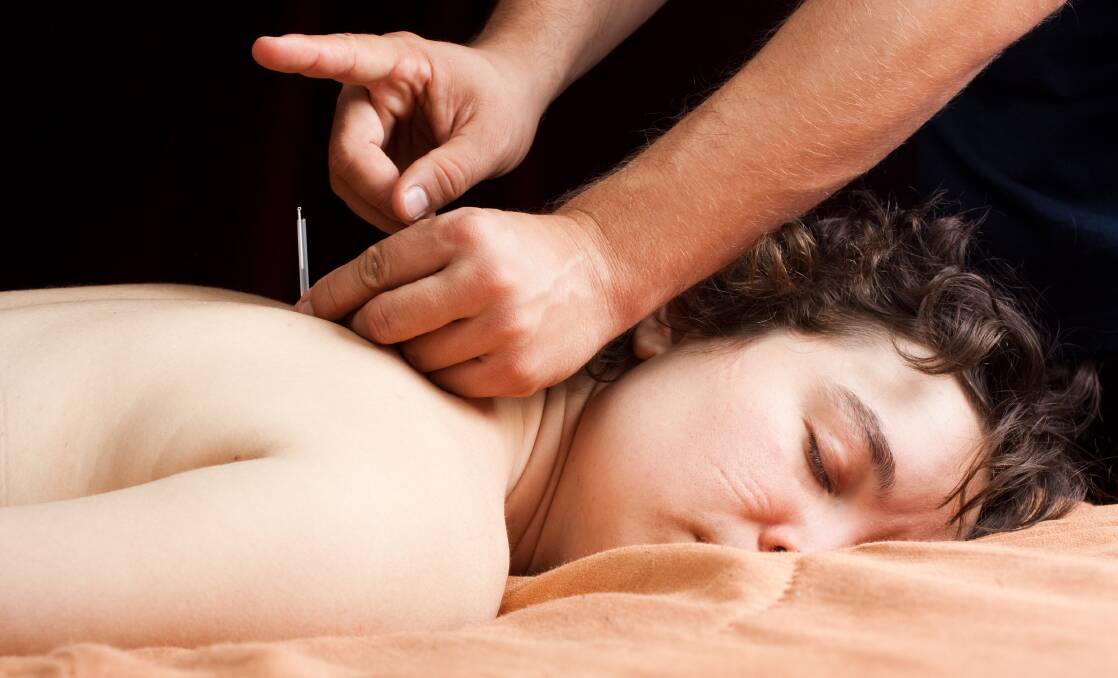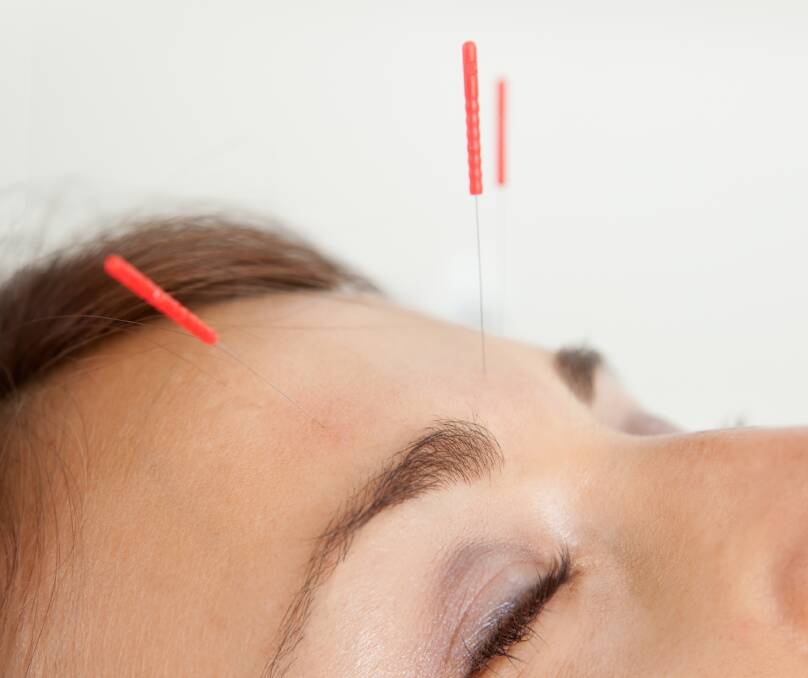Acupuncture 101: How it works and what it treats

This is branded content.
Have you ever seen those photos of people with tiny needles sticking out all over their bodies? That's acupuncture and it's an ancient Chinese medicine technique has been around for over 2,500 years and is still commonly used today. While it may look intense, acupuncture is not painful, and many people find it extremely relaxing. Acupuncture can provide a drug-free way to support health and wellbeing.
Keep reading and learn exactly how it helps and what issues it can tackle.
What is acupuncture?
At its core, acupuncture aims to keep your body's energy, known as qi ('chee'), flowing smoothly. This vital life force energy travels along designated pathways in your body called meridians. According to traditional Chinese medicine, when qi gets disrupted along these pathways - either weakened, congested or unbalanced - it can cause poor health and issues like pain, anxiety or digestion problems.
Acupuncturists are trained to identify specific points along these meridians that, when blocked, disrupt the natural flow of energy and contribute to physical or emotional imbalance. They insert needles into these problematic points along your meridians to reopen the flow and restore harmony. By redirecting qi along the right channels through strategic needling, the body is better able to regulate itself, heal more efficiently and return to wellness.
The location of the acupuncture points used in treatment can differ depending on your medical history and diagnosis. You might have needles placed in your back, hands, ears or even toes! But don't worry - when done properly by a licensed practitioner like those at Shen Adelaide or other acupuncture clinics, the needles are barely noticeable, and most people find the treatments very calming.
How does acupuncture work?
Inserting thin needles into your skin triggers different responses that activate your body's natural healing abilities. For example, it releases extra painkilling endorphins to provide faster relief. Studies show that acupuncture also causes physical responses, such as increased blood circulation in the treated areas.
Looking at it from a neuroscience lens, the needle stimuli send signals to your brain and central nervous system to adjust how chemical messages get sent around your body. By tapping into key acupuncture points, pathways are opened to restore optimal coordination between organ systems.
There are still some mysteries as to exactly how acupuncture works its magic. As researchers continue to learn more about the science behind it, this drug-free therapy is finally getting recognition around the world as a complementary treatment.
What conditions can acupuncture treat?
Today, the World Health Organization recognises acupuncture as an effective traditional medicine for dozens of common health problems. Some of the top conditions it may help include:
- Chronic pain: back, neck, shoulder, osteoarthritis, headaches/migraines
- Nausea: from surgery, medications or chemotherapy
- Respiratory problems: allergies, bronchitis, even asthma
- Digestive troubles: IBS, constipation, food sensitivities
- Mental health issues: anxiety, depression, insomnia
- Reproductive health: infertility, PMS symptoms
- Addictions: smoking, curbing alcohol dependence
Clinical research also shows promise for acupuncture in improving obesity, fatigue, menopause symptoms, type 2 diabetes, high blood pressure and more.
Of course, seeing an experienced practitioner is key to getting customised care. But generally, if you're struggling with a chronic health condition, acupuncture likely has something helpful to offer. The drug-free approach makes it a great option if you want to enhance your vitality naturally.

Why is it critical to see a licensed acupuncturist?
Now you know the basics of how acupuncture works and what it can do. But before you go sticking needles all over yourself, it's extremely important to see a properly qualified acupuncturist. This is an art that takes years of intensive training to master.
True acupuncture practitioners understand exactly where to place needles along your meridians for maximum benefit. They also know how to gently redirect energy flow based on your individual needs.
Licensed acupuncturists study for at least three years, including advanced courses in anatomy and physiology. This ensures they can provide effective therapy while avoiding any risk or complications.
So invest in an accredited practitioner to get the full benefits of acupuncture safely. Schedule a consultation so they can assess your energy meridians and customise a plan based on your health goals. Then relax and find your flow! When performed correctly, acupuncture is generally very gentle.
How do you prepare for your first acupuncture session?
Making the most of your treatment starts with being prepared so you can truly relax and receive the full benefits.
First, make sure you have an initial consultation with your licensed acupuncturist. This allows them to get your full health history, assess your energy flow and create a customised treatment plan. Come ready to chat openly about your lifestyle, diet, the challenges you currently face, and the health goals you want acupuncture to help with.
It's best not to arrive completely starving or stuffed from a big meal. Light, healthy snacks an hour or two before work well. Also, please avoid knocking back a few beers or glasses of wine right before you come in. Clear-headedness allows qi and blood to flow their best.
Remember to wear comfortable, loose clothing so your practitioner can easily access treatment points along your arms, legs or back. Then you can fully settle in and relax once the slender needles get inserted along your body's acupoints. During the session, you may feel slight tingling or warmth around the needle sites, which is completely normal. However, as per recent research, 57.7% of the patients claimed that they felt no needling pain at all during the first session.
Most importantly, approach your first acupuncture visit with an open mind and engage all your senses. The more mindful and relaxed you can be, the more profoundly balancing the treatment will be.
Takeaway
There's a lot more going on with acupuncture than poking someone full of holes! It's an intricate art of using needles to rearrange your inner flow, activate natural restorative powers and improve overall well-being.
With openness and overall awareness, acupuncture's gentle redirections can help where medications often fall short. All it asks is breath, trust and a dash of bravery as those thinnest needles start tapping secrets of healing wisdom.


